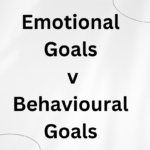Feeling rushed, under pressure, stressed and anxious are normal human responses that are experienced daily; often more than once and sometimes all at once. Be it work related, home, relationships, traffic, rushing to make an appointment, tasks we delay, social engagements that are not by choice… the list is endless. In fact, our life may never be absent of problems. There will always be something to confront and address. The mistake we often make is waiting until our life is clear of problems – no matter how big or small the problem may be – before we decide we can be happy or content. This may never occur, so the frame of your mind when these things arrive will determine the quality of your mood and your life.
Here are 10 tips about managing the storm when it arrives.
These are not about fixing the problem you are trying to address, they are about managing your state of mind while you address it.
1. Stop what you are doing.
If you are looking for keys, having an argument (or about to have an argument), trying to fix something or to reach or repair an item in the house, and can feel the frustration rise… just stop. Put whatever you are doing on hold for the moment and remove yourself from the scene. Nothing is more important than your current mental state and not much gets achieved with an angry mind.
2. Recognise what is happening.
Break down the event like an investigator at a crime scene. Talk yourself through the situation as if you are narrating the story. This helps develop self-awareness, emotional regulation and identify events leading up to the storm so it can be prevented or managed next time.
3. Identify and describe what is physically occurring in your body. What are you feeling?
Where can you feel heat or tightness? If possible, write it down. Name your emotion and allow it to be with you and pass, e.g. “my teeth are clenched and I feel heat in my forehead”. This gives you time to think rationally before you act, avoiding any further pain to yourself or others. Be curious not critical.
4. Breathe. Easy to say and easier to do.
Breathe with intention, audibly and purposely, then allow it to return to a state of natural ease. Four breaths: in through the nose, then sigh out the exhale through your mouth. It will calm down your parasympathetic nervous system, calming body and mind.
5. Remember this is your life.
This is about you and your story. If you are running late, you don’t need to satisfy someone who is awaiting your arrival at the cost of your health. Call them and explain. Is what you are doing really worth this exhausting expression of anger or frustration? It takes much less energy to be happy and calm than anxious or angry, so use your resources wisely.
6. Lie down. Get grounded literally.
Calm down your sympathetic nervous system – relax your body and the mind will follow. Feel the weight of gravity and allow your body to sag into the earth. You don’t need to be anywhere else other than where you are right now. You will feel the mental space to process your emotions without reacting to them so much.
7. How serious is the situation?
Do you need help? Can it get worse or can you fix it? If you need help, make a phone call or ask someone. If it is not serious and can be fixed and is creating a ship load of stress, it can wait.
8. Have a slow purposeful drink of water.
Be mindful of the process, focusing on the sensations it delivers – the glass or bottle touching your lips, the water swishing in your mouth and falling down your throat, the temperature, the sounds it makes. You will feel a sense of control and calmness return. The water will also hydrate you and regulate your body temperature.
9. Expose yourself to nature.
You might be near a park, a beach, water; or if you aren’t, get outside in the open air near grass, trees, or somewhere you can hear birds. Studies have shown that exposure to natural environments reduces psychological stress.
10. Allow what is happening to occur – you are human;
it’s ok to feel angry or sad or frustrated. Put yourself first and treat yourself with kindness. These emotions and feelings are common, natural, and at times necessary. Accepting and acknowledging them will de-escalate them. Acceptance is being free of judgement and guilt, and is a powerful step towards change.
There is no right or wrong way to do these. The intention is to consciously identify what is happening and what you are experiencing, accept it, and shift focus to your true inner self. The moment you do this is the moment you will begin to feel calm in the eye of the storm.
Anthony
Principal Counsellor at Mindful Health Counselling.
mindfulhealthcounselling.com.au


